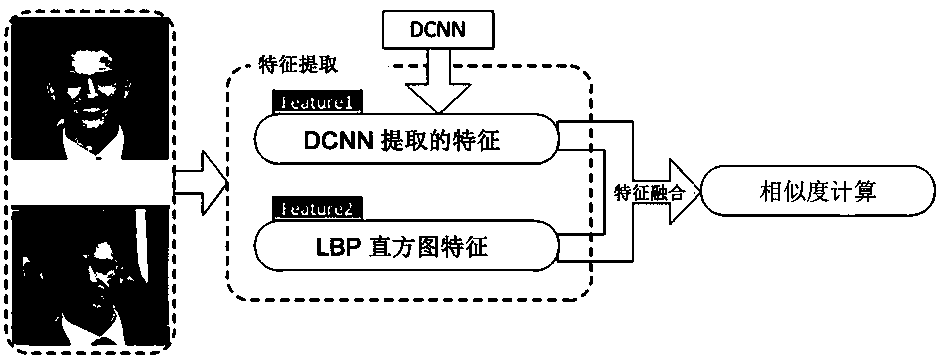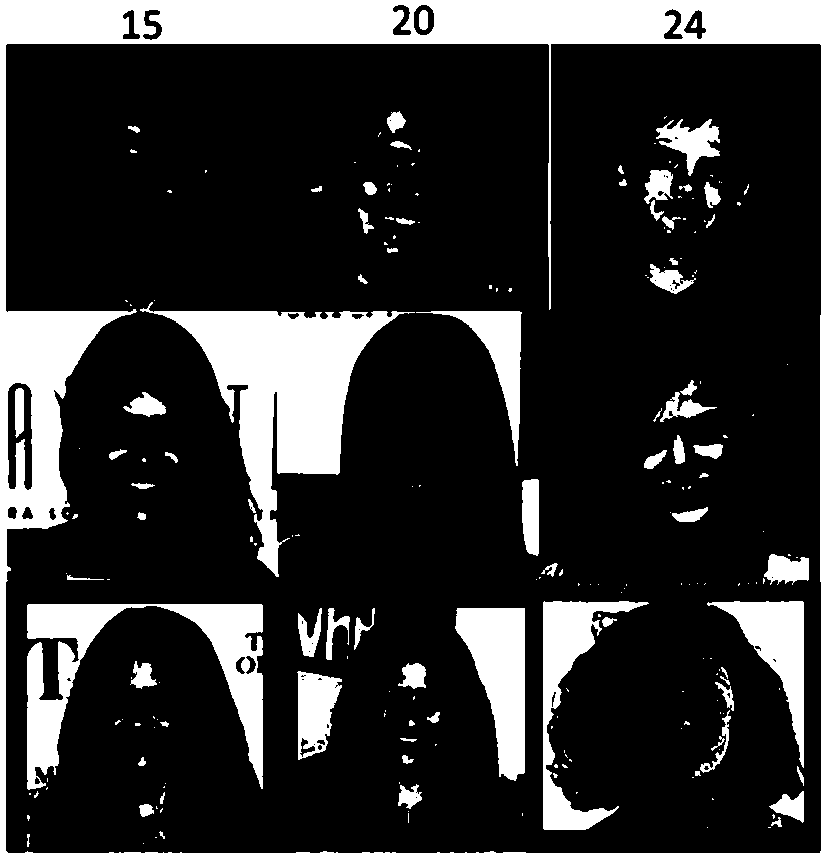A cross-age face verification method based on feature learning
A technology of feature learning and verification methods, applied in the field of face verification, can solve the problems of no semantic information and weak generalization ability, and achieve the effect of reducing complexity and improving accuracy.
- Summary
- Abstract
- Description
- Claims
- Application Information
AI Technical Summary
Problems solved by technology
Method used
Image
Examples
Embodiment 1
[0040] A cross-age face verification method based on feature learning, see figure 1 Shown, comprise the following steps: (1) obtain two pieces of human face images to be compared;
[0041] (2) Utilize the method of facial feature point location to carry out alignment operation to two pieces of human face images;
[0042] Under unconstrained environmental conditions, face images are inevitably affected by facial expressions, lighting, or occlusions, and this effect is amplified when the face parts of two images are not sufficiently aligned.
[0043] The purpose of facial feature point positioning is to further determine the position of facial feature points (eyes, eyebrows, nose, mouth, and facial contour) on the basis of face detection. The basic idea of the positioning algorithm is: the combination of the texture features of the face and the position constraints between each feature point. Early facial feature point localization mainly focused on the localization of sever...
PUM
 Login to View More
Login to View More Abstract
Description
Claims
Application Information
 Login to View More
Login to View More - R&D
- Intellectual Property
- Life Sciences
- Materials
- Tech Scout
- Unparalleled Data Quality
- Higher Quality Content
- 60% Fewer Hallucinations
Browse by: Latest US Patents, China's latest patents, Technical Efficacy Thesaurus, Application Domain, Technology Topic, Popular Technical Reports.
© 2025 PatSnap. All rights reserved.Legal|Privacy policy|Modern Slavery Act Transparency Statement|Sitemap|About US| Contact US: help@patsnap.com



